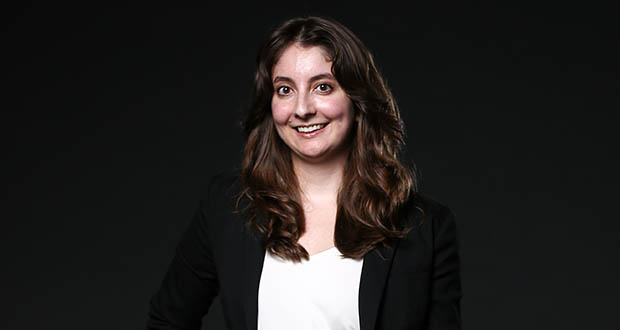Minnesota Lawyer and Finance & Commerce – Partner Content
Author: Kathryn Campbell
When I typed out the above request into ChatGPT, it instantly spit out the following pithy response: “ChatGPT: The Legal Assistant Minnesota Lawyers Never Knew They Needed.” I shared the response with a few of my colleagues to lighten up a busy weekday afternoon, but underneath the humor, a question emerged: does ChatGPT have a point? Do lawyers need ChatGPT?
Released in November 2022, ChatGPT is a generative artificial intelligence chatbot created by OpenAI, an artificial intelligence research laboratory. The premise for ChatGPT is simple: the user provides a prompt or question to the program, and ChatGPT generates a response, with its level of detail based in part on the parameters provided by the user.
ChatGPT has since become one of the primary water-cooler topics in the legal industry. Recently, professors at the University of Minnesota Law School published a white paper detailing a study in which the professors utilized ChatGPT to answer four final exams in constitutional law, employee benefits, taxation, and torts. See Johnathan H. Choi et al., ChatGPT Goes to Law School (Minn. Legal Studies Research Paper No. 23-03, 2023), https://ssrn.com/abstract=4335905. While ChatGPT may have passed the exams (albeit with less than flying colors—the chatbot averaged a C+ grade across the four exams), the study noted several deficiencies with the program, including ChatGPT’s failure “to go into sufficient detail when applying legal rules to the facts contained within exam hypotheticals” and properly spot issues, as well as its propensity to “go completely off-topic” for certain questions. Id. at 9-10. Despite ChatGPT’s limitations, the study concluded that it is likely that generative AI chatbots may become useful tools for practicing lawyers, such as by assisting lawyers with drafting of memos, overcoming writer’s block, and increasing efficiency. Id. at 11-12.
Ultimately, the results of this study, as well as the broader discourse around the use of ChatGPT by legal professionals, beg the question of if and how lawyers may integrate ChatGPT into their work. While elements of ChatGPT seem attractive—for example, the ability to generate memorandums and responses in minutes or to quickly recite the legal standard for summary judgment—ChatGPT should still be approached with caution, particularly when used in connection with client-related work.
Neither the Minnesota nor the ABA Model Rules of Professional Conduct explicitly prohibit the use of generative AI chatbots, but it is well-noted that lawyers owe their clients competent and diligent representation under these rules. To that end, and as frequently noted by ChatGPT critics, ChatGPT is imperfect; relying blindly on ChatGPT without the exercise of any human judgment or review could result in a poor outcome for a client.
Further, the use of ChatGPT implicates other concerns regarding the attorney-client relationship. For example, Rule 1.6 of the Minnesota Rules of Professional Conduct requires that attorneys keep client information confidential, absent the informed consent of the client or other extenuating circumstances for disclosure. In its Frequently Asked Questions, OpenAI states: “As part of our commitment to safe and responsible AI, we review conversations to improve our systems and to ensure the content complies with our policies and safety requirements.” In other words, when a lawyer inputs confidential client information into ChatGPT, such information is viewable by third parties. Without a client’s consent to use ChatGPT, a lawyer may therefore risk ethical exposure.
Finally, there is the question of whether work product generated by ChatGPT qualifies as attorney work product for purposes of privilege. Arguments exist for both sides. On the one hand, can a lawyer truly argue that the response generated by an AI chatbot constitutes that lawyer’s mental impressions and opinions? But to the contrary, is it not the practice of the modern-day lawyer to manifest their thoughts and impressions on the tools available to them, such as through online research databases like Westlaw and LexisNexis?
In sum, it is highly likely that generative AI chatbots such as ChatGPT may become another tool employed by lawyers in their daily practice to increase their productivity and efficiency. But, as with all new technology, lawyers should approach using these chatbots with caution to avoid harm to their clients or to their careers, such as by obtaining a client’s consent to use ChatGPT and carefully examining any work product created by ChatGPT. Otherwise, lawyers run the risk of violating their ethical obligations.
And before anyone asks—no, ChatGPT did not write this article for me.
Kathryn Campbell is a trial lawyer at the Minneapolis law firm Anthony Ostlund Louwagie Dressen & Boylan P.A. Kathryn’s practice involves advocacy in state and federal court for businesses and individuals and ranges from small-scale business disputes to broader matters involving constitutional questions.


